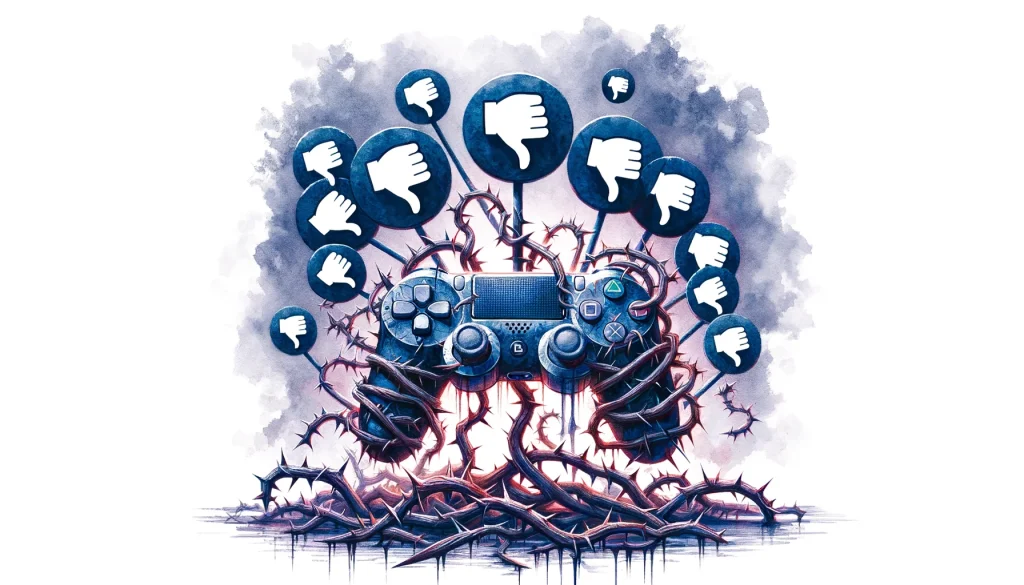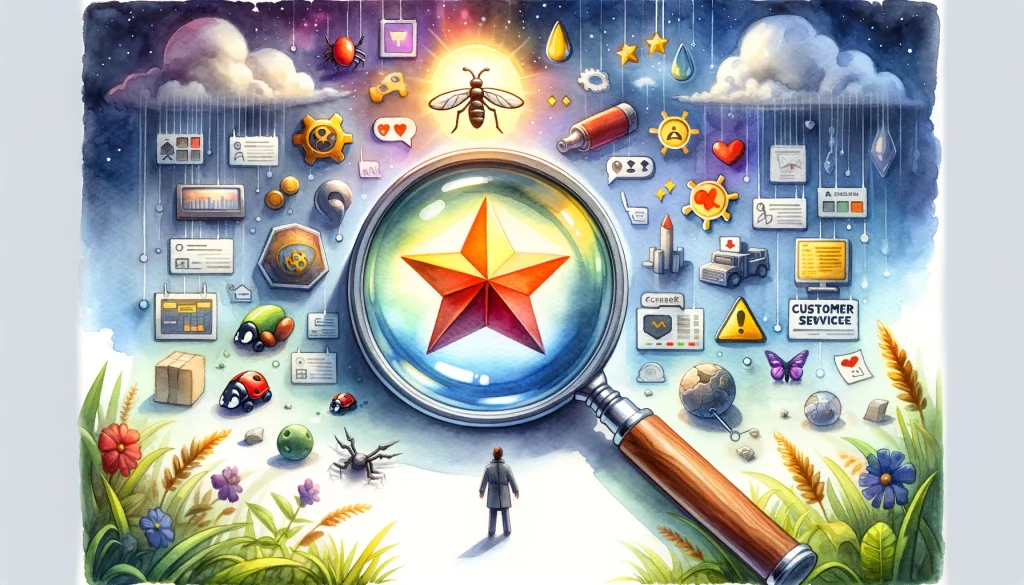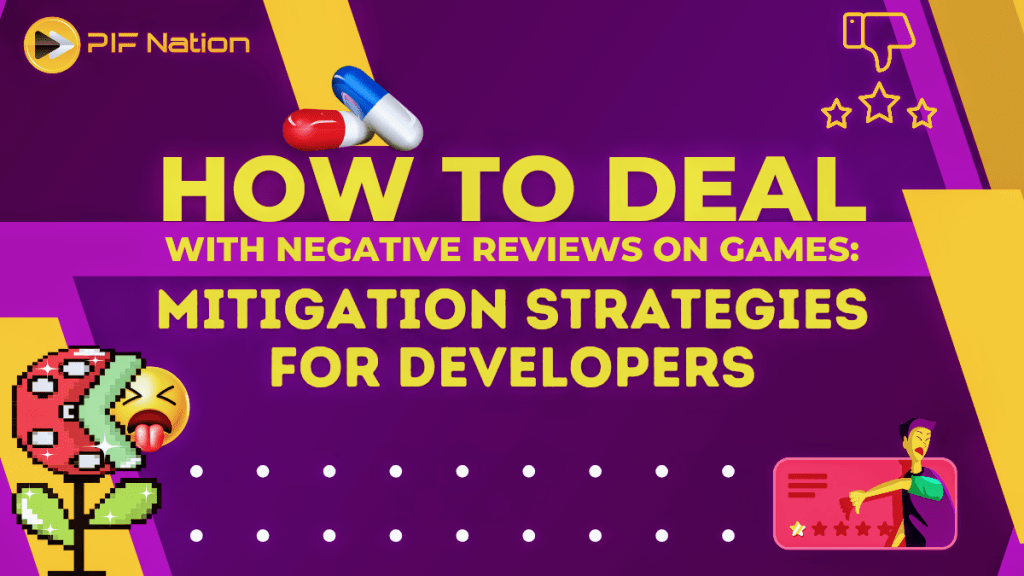First impressions of a game play a pivotal role in determining its success. Online reviews can profoundly impact a game’s success, especially early on. A cascade of negative reviews can affect everything from player numbers to future sales.
Yet, it’s not all doom and gloom. Developers have a variety of strategies to mitigate the impact of these reviews, turning potential setbacks into opportunities for growth and improvement. With the right approach, you can protect your game from the fallout of negative reviews and foster a stronger, more engaged player community.
Boost Your Game with PIF Nation’s Expert ASO Service!
The Impact of Negative Reviews on Game Launches

The launch of a new game is a pivotal moment for game developers. However, this exciting moment can quickly become challenging if negative reviews pour in. Let’s explore how these reviews can affect a game’s success and what developers can do to navigate this landscape effectively.
Initial Sales Drop
Negative reviews can immediately result in a significant drop in initial sales. Players often check ratings and reviews before making a purchase, and seeing a low score or reading negative comments can discourage them from buying the game. This initial reaction can severely impact the game’s financial success and return on investment.
-
- How to Deal with Negative Reviews on Games: Engage actively with the feedback. Responding to reviews can show potential players that the developers are committed to improving the game, which can mitigate the initial sales drop.
Long-term Brand Damage
Negative reviews can tarnish the reputation of the game studio itself. A pattern of negative feedback can lead to a loss of trust in the brand, making it harder to attract players to future projects.
-
- Game Marketing: Utilize positive player testimonials and success stories in your marketing campaigns to rebuild and enhance your brand’s reputation. Highlighting improvements and updates can also demonstrate your commitment to quality and player satisfaction.
Investor Confidence
Early negative feedback can also shake investor confidence in your game and studio. Investors are keenly interested in the market’s reception of a product, and a slew of bad reviews can lead to decreased financial backing for current and future projects.
-
- App Store Optimization (ASO): Improve your game’s visibility and appeal on digital storefronts. A well-optimized game page can attract more downloads and improve ratings and reviews, restoring investor confidence.
Community Trust
The trust between game developers and their community is fragile. Negative reviews can erode this trust, making it challenging to engage with your player base and gather support for the game post-launch.
-
- Engagement and Transparency: Keep the lines of communication open. Share your plans for addressing the issues pointed out in reviews and update the community regularly on your progress. This openness can help rebuild trust over time.
Understanding the Sources of Negative Reviews

Before discussing how to deal with negative reviews on games, developers must understand where they come from. Identifying the root causes of player dissatisfaction can guide developers in addressing concerns effectively and preventing similar issues in the future. Here, we explore three common sources of negative reviews and how awareness of these aspects can benefit game development and marketing strategies.
Technical Issues
One of the most frequent sources of negative reviews is technical problems within the game. Bugs, glitches, crashes, and performance issues can frustrate players, leading them to leave negative feedback. These issues often stem from insufficient testing or rushing to meet launch deadlines.
Implementing a robust beta testing phase with diverse testers can help identify and address these issues before launch. Moreover, quick, responsive post-launch support to fix reported problems shows commitment to quality and can turn unhappy players into satisfied fans.
Mismatched Expectations
Players feel let down when the marketing hype doesn’t match the actual game experience. Over-promising and under-delivering is a surefire way to accumulate negative reviews. This discrepancy often arises from game marketing materials that portray the game inaccurately.
Be transparent and honest in your marketing. Use real gameplay footage and be clear about the game’s features and content. App Store Optimization (ASO) is about attracting users and setting the right expectations. A well-crafted game description and accurate screenshots can ensure that players know exactly what they’re getting into.
Comparisons with Competitors
Games do not exist in a vacuum. They are often compared to other titles in the genre, and unfavorable comparisons can highlight perceived shortcomings. This is particularly true if competing games offer a smoother experience or more content at a similar or lower price point.
Focus on what makes your game unique. Emphasize unique selling points in your game marketing efforts. Engaging with the gaming community to highlight these aspects can help shift the narrative in your favor. Regular updates and content additions can improve the game’s value proposition over time.
Mitigation Strategies for Developers

Below, we outline several strategies developers can use to mitigate the impact of negative reviews on games. These strategies help address current criticisms and lay the groundwork for a healthier relationship between developers and their player base.
Engagement with the Community Pre-launch
Use social media, forums, and beta tests to engage with your community. Share development updates, sneak peeks, and honest assessments of the game’s state. This approach builds trust and can soften potential criticism by involving players in the game’s journey from development to launch.
Implementing a Robust Beta Testing Phase
Invite players from various demographics to participate in beta testing. Use their feedback to make improvements and communicate the changes made due to their input. This process demonstrates your commitment to quality and responsiveness, which are crucial factors in app store optimization and game marketing.
Responsive Post-launch Support
Establish a clear channel for reporting bugs and issues. Prioritize fixes based on their impact and be transparent about the resolution timeline. Regular updates that address community concerns can significantly improve public perception and ratings, a key aspect of dealing with negative reviews on games.
Leveraging Positive Community Feedback
Feature positive reviews and testimonials prominently in your game marketing. Use social media to share success stories and positive player experiences. This will boost morale among your team and player base, reinforcing the positive aspects of your game.
Update and Improvement Roadmap
Make your post-launch plans public. Detail upcoming features, fixes, and content expansions. This transparency shows a commitment to your game’s longevity and quality, encouraging players to stick around and see how the game improves over time. It’s also a good practice in App Store Optimization, keeping your game’s listing fresh and engaging.
Conclusion
Negative reviews are not the end of the road but a signpost for improvement. By adopting a proactive approach to feedback, engaging with your community, and continuously refining your game, you can build a stronger, more positive relationship with your players. Remember, the goal is to create an enjoyable and memorable gaming experience that stands the test of time. Let negative reviews catalyze change that propels your game to new heights.
Are you ready to optimize your game’s potential? Dive deeper into the world of game development and App Store Optimization with our guide. Discover expert strategies, insights, and tips to make your game stand out in a crowded market. Optimize Your Game for the App Stores Now.
Frequently Asked Questions
Does responding to negative game reviews help?
Yes, responding to negative game reviews can help. It shows that developers are listening and willing to make changes, which can improve the relationship with the player community. Addressing concerns and fixing problems can turn unhappy players into supporters, positively impacting the game’s reputation.
How do you mitigate negative game reviews?
To handle negative game reviews, developers often update their games to fix bugs and add new features, engage with players to understand their concerns and sometimes offer free content as a gesture of goodwill. Positive engagement and visible improvements can change players’ perceptions and reviews.
How do games deal with bad reviews?
Game developers address bad reviews by fixing reported issues through updates, communicating openly with their player base, and sometimes offering compensation for any troubles. Engaging with the gaming community and committing to improving the game can turn negative opinions around.
What is the power of negative game reviews?
Negative game reviews can significantly influence a game’s reputation and sales. They can sway potential buyers’ opinions, leading to a drop in interest and purchases. However, these reviews can also provide valuable feedback for developers to improve their games.
What strategies do you employ to mitigate the impact of negative reviews on the company's reputation?
To lessen the damage of bad reviews, businesses focus on quickly fixing problems, responding kindly to all feedback, and highlighting positive customer stories. Encouraging happy customers to share their experiences can also balance the negative reviews, improving the company’s public image.
Looking to expand your player base in Southeast Asia?
Discover one-stop solutions for game publishing in Southeast Asia with PIF Nation.

